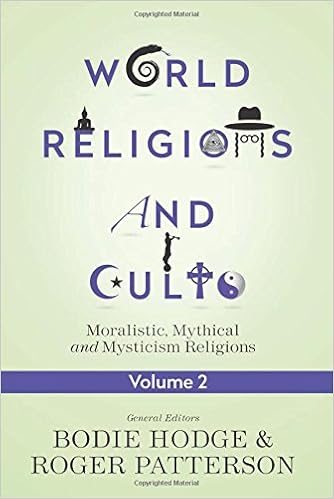Rational Justification
How are our beliefs justified? What counts as a rationally justified belief and what counts as an irrational claim?
In order for a belief or claim to be rationally justified, it must have justifying reason behind it. However, as many have pointed out, this seems to lead to problems with basic beliefs that we all take for granted, such as universal, invariant noncontradiction. What reason could anyone have for believing in noncontradiction? It doesn't seem possible for it to be a conclusion, because it must be presupposed in order to come to any conclusion. But how can justifying reason be behind a claim of noncontradiction if it has to be presupposed to come to any conclusions? Noncontradiction seems like an arbitrary assumption!
Many people have philosophically (though almost never practically) embraced solipsism as a result of the difficulty of first principles (or first premises, or ultimate presuppositions).
It seems to me that there are three and only three methods by which beliefs can be rationally justified.
Initially, either the justifying reason behind my belief is my own reason, or it is someone else's reason. There are no other options.
Someone Else's Reason
1. Imputation
If it is someone else's reason, then the belief or claim has been imputed into me, and its justification (or lack thereof) goes along with it.
Imputation, the first of the three methods, is seen when we recognize that the premises of a calculator are rationally justified. The calculator's reason didn't justify its premises: they were justified in the mind of its creator.
My Reason
On the other hand, if it is my reason, it is either my reason by means of my will, or it is my reason regardless of my will. Again, there are no other options.
2. Authorship
If it's my reason by means of my will, then I'm the author of the fact and also the author of the claim. All of C.S. Lewis' claims about Tumnus the Faun are rationally justified, because Lewis' will simply is the authority regarding the facts about Tumnus. Authorship is the second method.
3. Discovery
Finally, if it is my reason regardless of my will, then I have engaged in discovery. Discovery is the third and final method. Discovery always involves conclusions based on prior premises. If the premises are not justified, the conclusion likewise is not justified.
Minting the Coin or Passing the Buck
It seems to me that these are literally the only three possible methods for rational justification of a claim.
However, two of these methods (imputation and discovery) simply kick the can down the road. Imputation takes an already-justified claim and moves it from one claimant to another; while discovery takes already-justified claims and uses them to formulate a new claim.
Authorship is the only method of the 3 that actually provides ultimate rational justification for a claim: the justifying reason behind it.
Therefore, it seems to me that our first principles -- if rationally justified -- are imputed to us by their author. And, the author of our first principles is the willful author of universal invariant truths, and therefore the author of time and space.
In other words, if you are rational, then God exists.
More of My Writing on the Subject

Gilbert Guttlebocker, Defender of Dragons
Riveting, yet absurd; romantic, yet innocent; Gilbert Guttlebocker, Defender of Dragons is a little Roald Dahl, a little Harry Potter, and a little Chronicles of Narnia, all rolled into one. Timothy McCabe collaborates with the great Benedict Ballyhoot to bring you the novel of the century!

In Printed Form
Along with numerous other authors including Don Landis, Bodie Hodge and Roger Patterson, Timothy McCabe contributes analyses of various world religions and cults in this volume from Master Books.
Other Writings
"Who killed King Saul, cause Samuel 31:4 and 2 Samuel 1:8-10 contradict each other?"
1 Samuel 31:4-5 Then Saul said to his armor bearer, "Draw your sword and pierce me through with it, otherwise these uncircumcised will come and pierce me through and make sport of me." But his armor bearer would not, for he was greatly afraid. So Saul took his sword and fell on it. When his armor bearer saw that Saul was dead, he also fell on his sword and died with him. 2 Samuel 1:8-10 "He said to me, 'Who are you?' And I answered him, 'I am an Amalekite.
Continue reading...
"How do we know that God(s) still exists today? "
God created time (Genesis 1:1; 2 Corinthians 4:18; 2 Timothy 1:9; Titus 1:2; Hebrews 11:3; Jude 1:25). As the One Who created time, He is inherently atemporal (or omnitemporal depending upon which aspect of His eternality we are emphasizing) (Deuteronomy 33:27; 1 Timothy 1:17; Hebrews 9:14). Given this, He is definitively always the same (Exodus 3:14; Malachi 3:6; James 1:17). If He is always the same, He cannot cease to exist.
Continue reading...
"If God said "Thou shalt not kill" then why did he flood the whole world leaving only Noah and his family alive, and how is the destruction of Sodom justified (killing people for engaging in "immoral" sex), is God exempted from morality?"
If you have small children, you may have told them that they are not allowed to answer the door, or to talk to strangers. Since they are your children, it is morally wrong for them to disobey you, at least in any circumstance where your commands do not go directly against God's commands (Ephesians 6:1; Colossians 3:20). This means that it would be morally wrong for your children to answer the door, or to talk to strangers, because in so doing, they would be disobeying you.
Continue reading...